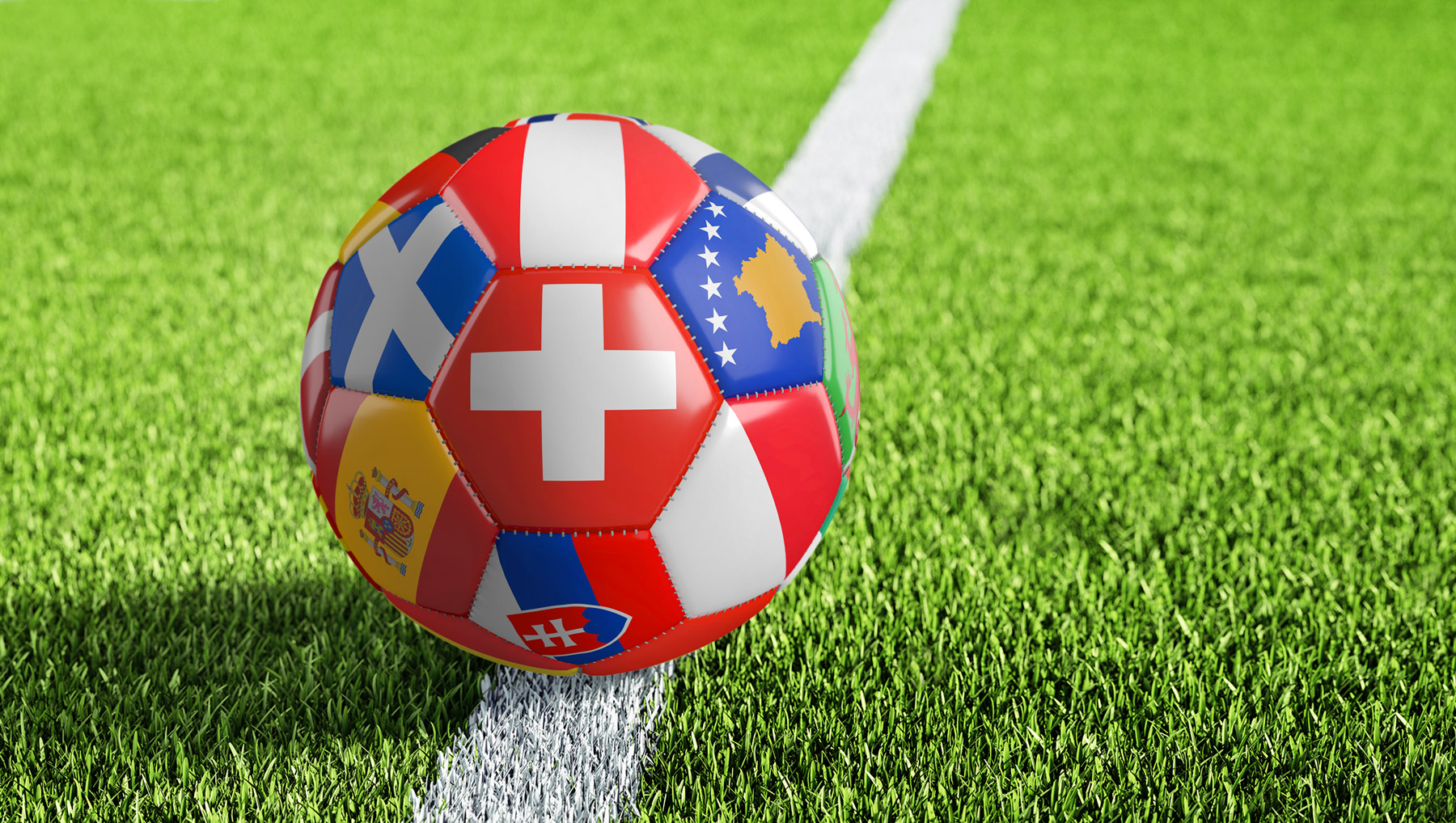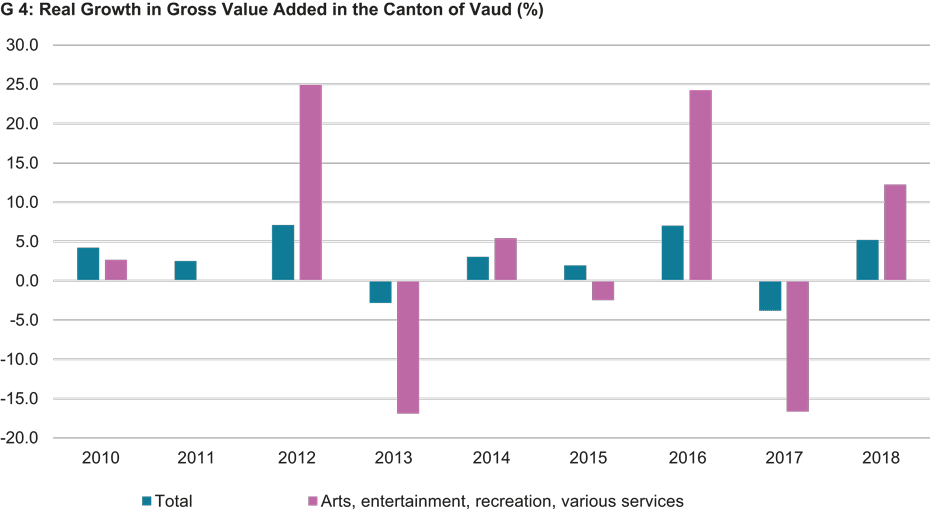How major sporting events distort Swiss GDP
- Swiss Economy
- KOF Bulletin
Two major sporting events are on the agenda this year: the European Football Championships and the Olympic Games in Tokyo. The sporting organisations behind them, UEFA and the IOC, both have their headquarters in Switzerland. Consequently, these competitions also have an indirect economic impact on Switzerland's gross domestic product.

The modern Olympic Games have been held since 1896. The Football World Cup has been held every four years since 1930. Such major sporting events are of interest not only to fans of athletics and football. Countries’ economic performance is also affected by competitions that attract large audiences. Tourism in the host country usually receives a boost from such events. The income from ticket sales goes into the pockets of the organisers. And, finally, the construction activity needed to build stadiums and infrastructure also boosts the economy.
Switzerland earns money from sporting events
But even if the Olympic Games take place in faraway Asia, as they will this year (provided they are not cancelled owing to coronavirus), Switzerland earns money indirectly. The country is home to the world football association (FIFA), the European football association (UEFA) and the International Olympic Committee (IOC). And, every four years, these organisations earn substantial revenues from the sale of television and branding rights. "Switzerland is a relatively small country. That’s why these revenues have a noticeable effect on its gross domestic product," explains Yngve Abrahamsen, who heads the Swiss Economy Division at KOF. However, this income is partly offset by expenditure because organisations such as FIFA and the IOC, in turn, have to commission agencies to film these events. "The differential is the added value, and only that is relevant to GDP," says Abrahamsen. This differential should not be underestimated. According to KOF’s calculations, it amounts to about 0.4 percentage points of GDP growth in World Cup and Olympics years. In subsequent years, however, there is no such effect, so the difference between a World Cup or Olympics year and the following year amounts to about 0.8 per cent of GDP. For this reason, KOF has been showing GDP figures both including and excluding sporting events since 2017. "This calculation method has proven itself and has now become widely accepted," says Abrahamsen. Many Swiss institutions, such as the State Secretariat for Economic Affairs (SECO), use similar calculation methods.
Effect of sporting events was overlooked for a long time
Excluding sporting events makes sense from a forecasting perspective because they have nothing to do with the classic business cycle. A GDP figure excluding sporting events therefore provides better information about the actual business cycle. “GDP including sporting events goes up and down erratically and is therefore difficult to interpret. For a long time this factor was not on economists’ radar,” says Abrahamsen.

The smaller an economic area is, the greater such effects are in relative terms. For example, the value added in the canton of Vaud, which currently hosts a record number of 26 international sporting federations and 20 international sporting organisations, fluctuates sharply around Olympics years such as 2012 and 2016 (see G 4). A country with a large GDP like the United Kingdom, on the other hand, hardly feels any such effects, even though the country is home to the International Tennis Federation (ITF), for example. The additional value added there is simply of little significance.
Hardly any labour market effects in Switzerland
Incidentally, the fluctuations in Swiss GDP have hardly any impact on the labour market. “The sporting organisations have their own staff, of course. But they are permanently employed and there is hardly any increase in personnel during World Cup and Olympics years,” says Abrahamsen. Temporary growth in jobs is more likely to occur in the host cities.
This year, however, when – as things currently stand – the European Football Championships and the Tokyo Olympic Games are taking place, the effect of sporting events will be smaller than usual owing to the pandemic. KOF expects such events to increase Swiss GDP by only 0.2 per cent instead of the usual 0.4 per cent. This is because the television companies will probably receive a coronavirus-related discount when buying the broadcasting rights, explains Abrahamsen. In addition, the production costs for broadcasting are higher than usual as a result of the COVID restrictions, which means that the differential between revenues and intermediate inputs – i.e. the GDP-relevant value added – will be lower.
Contacts
KOF Bereich Zentrale Dienste
Leonhardstrasse 21
8092
Zürich
Switzerland